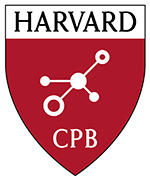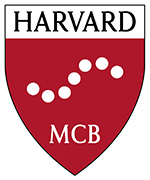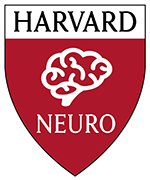Serin Baek (CPB ’21), Leena Hamad (MCB ’21), and Katelyn Li (Neuro ’21) and Vanessa Roser (Neuro ‘21) have been elected to the historic and prestigious academic honor society Phi Beta Kappa (PBK). Each fall, 48 seniors from across the college are chosen to join the Harvard PBK chapter based on grades, coursework, and confidential letters of recommendation.
This year’s Senior 48 were announced during a week when many students are packing up and leaving campus for the semester. “I was definitely surprised!” Baek says. “Truthfully, I’ve been having a little bit of a rough week, especially since we have to move out of campus by the end of this week, so this news was such a great motivator to continue pushing through the week and the end of the semester.”
Hamad’s notification arrived while she was on a call with her parents. “That was a very sweet, unexpected moment to share with them, especially because I’m not at home right now,” she says. “Getting the PBK announcement was such a joy! This semester has definitely been a challenge for everyone, and the backdrop of the pandemic and the political atmosphere has only added to the chaos. Lately, I’ve been finding joy in my friendships, small achievements, and long walks by the Charles. So it’s really nice to have something bigger to celebrate, too.”
The new PBK inductees agree that the fall semester has been a challenging one, but being elected to PBK has been a bright spot. “I just feel extremely grateful,” Li says. “During this pandemic, I’ve had an abundance of time to reflect on the pathways and people that have led me to where I am now. I owe everything to my family and my mentors for their sacrifices and support, in pushing me to challenge myself and to constantly pursue new fields that academically excite me.”
Roser adds, “It’s been incredible seeing how people have adapted to create community in our new normal. Being on campus this semester felt a bit isolating at times, so staying in touch with friends and family was so important! My roommate and I really relied on each other to get through all of our thesis and application deadlines together. I know that I couldn’t have done it alone.”
All four of these seniors have taken advantage of the broad course offerings at Harvard and cultivated interests not only in the life sciences, but also in public health, policy, art, and culture.
Baek is a CPB concentrator who plans to become a pediatrician but has supplemented her chemistry studies with language and culture courses, including three years of Swahili. “I was lucky enough to combine my interest in global health with my Swahili knowledge and obtain a global health internship in Tanzania last year,” she says. “That internship and my continued interest in these areas have also led me to consider doing pediatric global health work in East Africa in the future.” She plans to take a gap year before grad school, where she’ll likely study global public health.
In addition to her MCB concentration, Hamad has a government secondary and a citation in Arabic. “The best part is discovering the unexpected threads that link these seemingly disparate fields together. It’s made for a powerful, comprehensive (and fun) learning experience,” she says. “I’ve always been drawn to global health, which is a field that requires different approaches to problem solving–science, policy, and more. I do see a career for myself in medicine/research, but also want to make sure my contributions have a global impact. My academic path has helped me explore the political, social, and humanistic questions that surround health. My Arabic coursework has broadened my avenues in the humanities, as well—much love to the NELC (Near Eastern Languages and Civilizations) department and CMES (Center for Middle Eastern Studies) for helping me dive into a new world of global literatures!”
At Harvard, Li has pursued coursework in government and policy and Chinese language studies, as well as neuroscience and computational biology. “Four years at Harvard has always felt too short, and so I’ve chosen classes with the goal of gaining exposure to as many different ideas and questions as I could possibly fit in,” she says. “My studies within these varied fields have led me to think deeply about how the scientific research and medical practice that I pursue in the future is fundamentally driven by social impact.” She plans to take one or more gap years to continue in research after graduation, while also working in disability policy and advocacy.
Roser says that her secondary in Film and Visual Art and citation in Japanese complement her Neuroscience concentration. “I think that my neuroscience research on learning and decision-making in the Uchida Lab is connected to the topics that come up in my art, which I view as another way to ask questions about cognition and the brain,” she explains. “For example, I was able to design an interactive virtual comic last year that responded to a reader’s choices, which was inspired by the computational learning models I am studying for my thesis project.” After graduation, Roser plans to earn a neuroscience Ph.D. and continue creating visual art, including a graphic novel project about her experiences in neuroscience research.
All four seniors noted that their academic accomplishments would have been impossible without their family, friends, and mentors. “Thank you so much to the MCB community for giving me the opportunity to explore my interests, and I especially want to thank Dominic Mao and Irina Cashen for all their support in my concentration!” says Baek. “I couldn’t have achieved any of this without the support of my family, friends, and faculty at Harvard!”
Hamad agrees, “I’d like to thank the MCB community for being such a vibrant environment to learn and grow in! I’m grateful for the support of the undergraduate MCB-CPB Department, especially Dominic Mao and Irina Cashen, who have made MCB truly feel like home at Harvard.”
Li likewise expressed her gratitude to MCB staff and the Neuro community, saying, “I’d like to give a huge thanks to my brilliant lab mentors Margaret Schroeder and Guoping Feng and my amazing concentration advisor Ryan Draft–along with the professors, TFs, and friends I’ve learned so much from during my time at Harvard–for inspiring my love of science and of the beautiful mysteries wrapped up in the human brain.”
Roser thanked her labmates and advisors, saying. “I am incredibly grateful to my research mentor Dr. Naoshige Uchida, as well as Dr. Ryunosuke Amo, who spent countless hours in the lab this year supervising my thesis research! I would also like to thank my advisor Dr. Ryan Draft and my friends and family, who helped me navigate all of the twists and turns of 2020.”
Congratulations to Serin, Leena, Katelyn, and Vanessa!
CORRECTION (December 13, 6:25pm) A previous version of this announcement, which was published on November 19, omitted Vanessa Roser as one of the PBK inductees. We’ve updated the text to include quotes from Ms. Roser. The website committee regrets the error.
by Diana Crow





